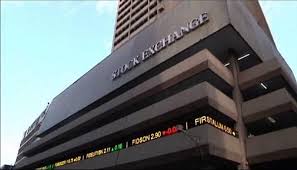Investors on the Nigerian Stock Exchange (NSE) have made a gain of N1.933 trillion on their investment in the month of October, 2020.
This is despite the recent social unrest witnessed during the month. With the performance, it shows that the stocks market has fully recovered from COVID-19 pandemic.
Capital market analysts stated that the domestic equities market has continued to rally as investors’ appetite for risky asset was sustained given the low-yield fixed-income environment and the positive nine months corporate earnings releases.
Reviewing stock market activities in October, the basic indicators of the Nigerian Stock Exchange (NSE), All-Share Index (ASI) gained 13.79 per cent to close at 30,530.69 points on October 30, 2020, from 26,831.76 points at which it opened for the month as the ASI year-to-date returns increased to 13.74 per cent. Market capitalisation appreciated by N1.933 trillion to close the month of October at N15.958 trillion from N14.025 trillion at which it opened for the month.
On the sectorial indices, the NSE’s Consumer Goods index recorded the highest rise during the month, with a gain of 20.33 per cent, NSE Banking index up by 20.05 per cent, while NSE Pension index appreciated by 17.53 per cent.
Also, NSE 30 index rose by 14.88 per cent; the NSE Premium index up by 13.99 per cent, while NSE Lotus II index appreciated by 13.05 per cent. NSE Industrial Goods, Oil and Gas and Insurance indices recorded a monthly gain of 11.24 per cent, 10.35 per cent and 4.54 per cent, respectively.
During the month, the market has been awash with Q3, 2020 corporate earnings. Some of the notable results submitted included Lafarge Africa, Airtel Africa, Stanbic IBTC Holdings, United Capital, Flour Mills of Nigeria, MTN Nigeria Communications, among others, all published strong growth numbers.
Meanwhile, the year 2020 has been one of the most eventful years for the global economy and more specifically, the Nigerian economy. First, the outbreak of the COVID-19 pandemic brought the Nigerian economy to a halt as the government, like other government across the world, implemented strict lockdown measures to curb a further spread of the virus.
Notably, the Nigerian Stock Exchange, which had started out as the best performing equities market in the world at the beginning of the year, quickly sank into bear territory, reaching an historic low at the peak of lockdowns.
However, the equities market downfall did not last for long as government’s relaxation of lockdown measures, low interest rate in the fixed income market coupled with resilient performance posted by corporates during the peak of lockdown in Q2, 2020 and growing financial system liquidity in H2, 2020 sparked a bullish run on the Nigerian stock market.
United Capital Plc hinted that the stock market is clearly the only game in town, thanks to the low yield environment. It urged reluctant investors to get involved, ahead of huge maturities expected to bolster stock prices.
According to the Investment House, “with mouthwatering returns delivered to investors so far, we are continuously inundated with two questions. When do you see the interest rate environment turning and do you think the stock market rally is sustainable? Well, we think both questions are related, given that a return to double-digit yield environment will clearly discourage the recent bullish sentiment for stocks.
“However, we do not see a return to double-digit yield in the interim, no thanks to trillions of naira worth of maturities in the horizon, projected to remain till Q1, 2021. Meanwhile, foreign portfolio investors (FPIs) funds (in several billion dollars) remained trapped in Nigeria due to currency market illiquidity, some of this would find their way into stocks, in search of alpha. Lastly, the few Q3, 2020 earnings so far submitted points to stronger than expected full-year earnings, as observed in Lafarge Africa, Stanbic IBTC Holdings and Flour Mills. Thus, we do not see a sharp pullback in stock prices for now.”
The chief economist/head, Investment research of PanAfrican Capital Holdings, Mr Moses Ojo, attributed the equities market performance in October to low yield in fixed income instruments, saying that low yield in treasury bills created room for foreign Investors invest in the fundamentals shares on the Nigerian Stock Exchange (NSE).
He expressed further that mixed earnings by listed banks tend to drive the equities market further in November. According to him, in this situation, there will be fund switching and the only short to medium term alternative asset class is the equities market.
He predicted strong equities market performance in November, stressing that, low yield on money market instruments expected to persists.
Also, the managing director, APT Securities and Funds Limited, Mallam Garba Kurfi, noted that the monetary policies of Central Bank of Nigeria (CBN) attracted investors to the equities market.
He mentioned the cut on Monetary Policy Rate (MPR) to 11.5 per cent gives investors no option but to invest in equities market in October. According to him, CBN in its monetary policy reduced MPR by 100 basis point to 11.5per cent, while treasury bill (TB) is less than one per cent per annum. Also, the CBN had enforced penalty fee if banks cannot lend 65per cent of their deposit. With this, investors were left with no option than to move into capital market and this is likely to continue up to the end of the year.


